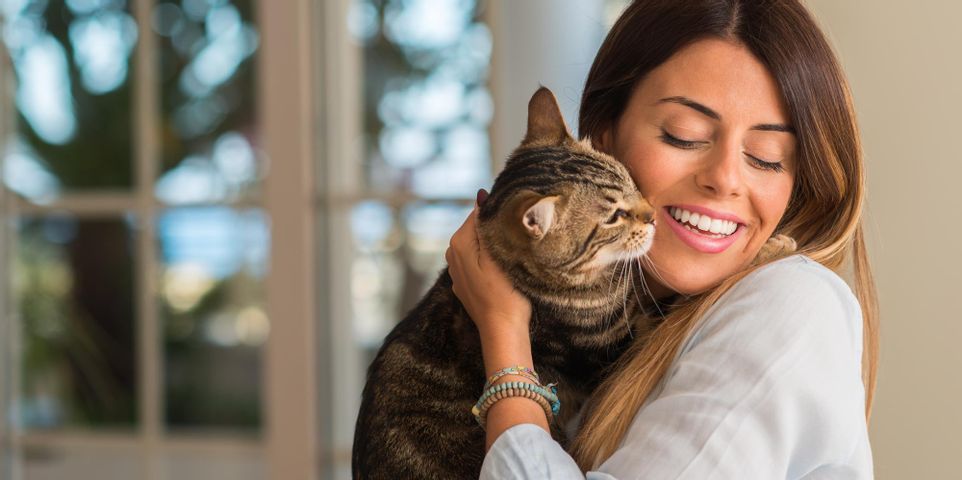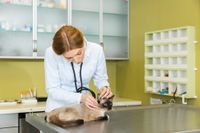
All elderly cats require special care, as they’re more vulnerable to contracting illnesses than their younger counterparts. Cats over 7 years old are considered seniors and typically need more frequent visits to the veterinarian to check for issues such as arthritis and kidney disease. Use these senior cat care tips to help your feline friend enjoy a happy and healthy life.
Do:
Schedule veterinarian visits about every six months.
 Visit your local veterinarian about every six months, even if the cat appears healthy. Felines often hide pain symptoms and may require a special diet to help with issues such as kidney and heart disease. Be honest with your veterinarian about the cat’s diet, activity level, and behavior so the pet specialist can devise a customized care plan.
Visit your local veterinarian about every six months, even if the cat appears healthy. Felines often hide pain symptoms and may require a special diet to help with issues such as kidney and heart disease. Be honest with your veterinarian about the cat’s diet, activity level, and behavior so the pet specialist can devise a customized care plan.
Keep a detailed account of daily activities.
Record your cat’s eating, water, and litter box habits every day. Keep track of behavioral changes as well to provide your veterinarian with as much information as possible. If the cat starts behaving erratically, loses weight, vomits frequently, has no appetite, or experiences any other negative changes, schedule an appointment with a doctor immediately, as these symptoms could indicate a larger health issue.
Give your pet plenty of attention.
Pet and play with your elderly feline every day. Scratch favorite spots such as behind the ears and let the feline sit in your lap or nestle on the bed. Some cats prefer to snuggle next to their humans, so keep this in mind. Spend as much time with the animal as possible so it always feels loved.
Don’t:
Forget to accommodate mobility needs.
Make changes around your home in light of your aging cat’s mobility needs. If the cat has trouble going up and down the stairs, for example, relocate their litter box and food to the ground floor, instead of the basement. Place dishes and bedding on the same floor as well to minimize your cat’s risk of stair-related injuries.
Disobey the veterinarian’s food instructions.
Use your doctor’s feeding recommendations to keep your cat at a healthy weight. This is especially important for older felines who are typically less active. Excess weight also increases the cat’s risk of health issues such as liver disease. Provide a protein and fatty acid-dense diet to give your furry friend the nutrients they need, including those that support joint health.
Allow your cat to be inactive.
Provide enrichment toys such as food puzzles that keep elderly felines active and stimulated. Encourage physical activity with leashed walks and motorized mice, among other toys, for weight management as well as muscle and joint health.
Schedule regular veterinarian visits for your older feline at Fairport Animal Hospital in Fairport, NY. Serving cats, dogs, birds, small animals, and exotic pets, this full-service pet clinic uses state-of-the-art diagnostic equipment to perform urine, blood, and disease tests. They also offer surgery and dental care. Call (585) 388-1070 to make an appointment or visit them online for more about available services.
About the Business
Have a question? Ask the experts!
Send your question

